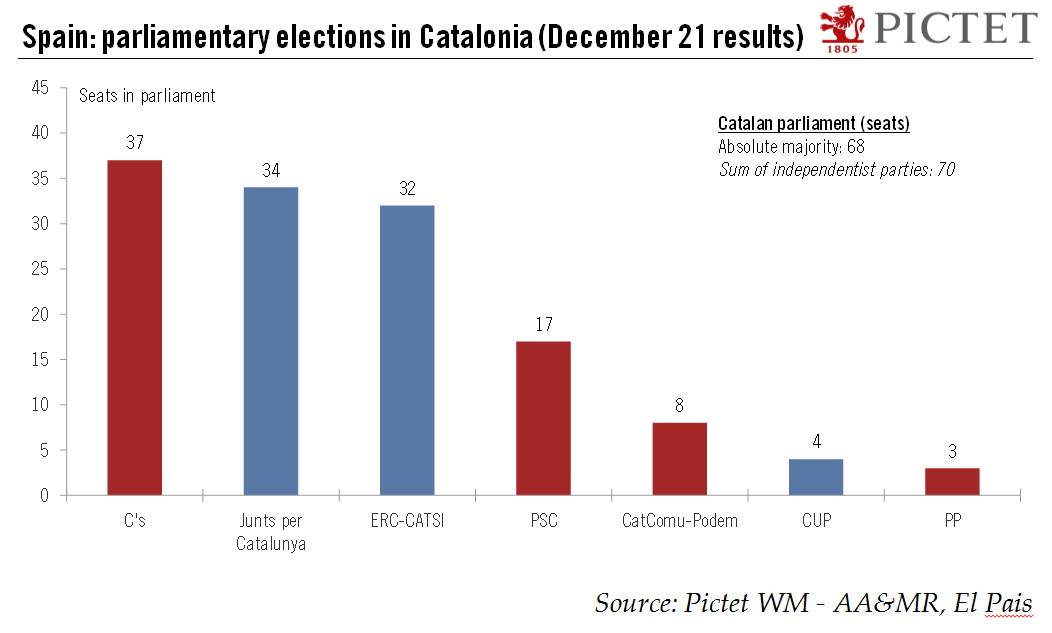Spain, like Europe, continues to take political tensions in the region in its stride, but prolonged uncertainty could have an impact on the economy.Following the December regional elections, in which pro-independence parties won a majority of parliamentary seats, the main challenge in Catalonia will be the formation of a new coalition government. Catalan parties have until end March/early April to reach an agreement on the next regional president, failing which repeat elections may need to be called.This week, pro-independence parties agreed a deal to try to re-elect Carles Puigdemont as the region’s president (Puigdemont fled abroad just before the December elections to avoid arrest). However, it is still unclear how this deal will work in practice.Muted market reaction to the latest
Topics:
Nadia Gharbi considers the following as important: Calalonia Spain, Macroview, Spain growth forecast, Spanish economy, Spanish politics
This could be interesting, too:
Cesar Perez Ruiz writes Weekly View – Big Splits
Cesar Perez Ruiz writes Weekly View – Central Bank Halloween
Cesar Perez Ruiz writes Weekly View – Widening bottlenecks
Cesar Perez Ruiz writes Weekly View – Debt ceiling deadline postponed
Spain, like Europe, continues to take political tensions in the region in its stride, but prolonged uncertainty could have an impact on the economy.

Following the December regional elections, in which pro-independence parties won a majority of parliamentary seats, the main challenge in Catalonia will be the formation of a new coalition government. Catalan parties have until end March/early April to reach an agreement on the next regional president, failing which repeat elections may need to be called.
This week, pro-independence parties agreed a deal to try to re-elect Carles Puigdemont as the region’s president (Puigdemont fled abroad just before the December elections to avoid arrest). However, it is still unclear how this deal will work in practice.
Muted market reaction to the latest developments suggests that investors believe the risks associated with Catalan political uncertainty are still contained. As mentioned in our previous Flash Notes, we do not think that, as things stand, these risks will lead to a systemic crisis for Europe.
The economic impact of the current political turmoil for the Spanish economy is difficult to measure, as growth was already expected to slow somewhat this year anyway. So far, most companies that have moved their legal headquarters out of the region have relocated to other parts of Spain, and economic indicators continue to point to strong momentum. At this stage, we see no major reason to change our forecast of 2.5% GDP growth for Spain in 2018 (after 3.1% in 2017). However, prolonged uncertainty could have an economic impact and rating agencies could prove reluctant to upgrade Spain further before there is a clearer picture of how the Catalan crisis will be resolved.
